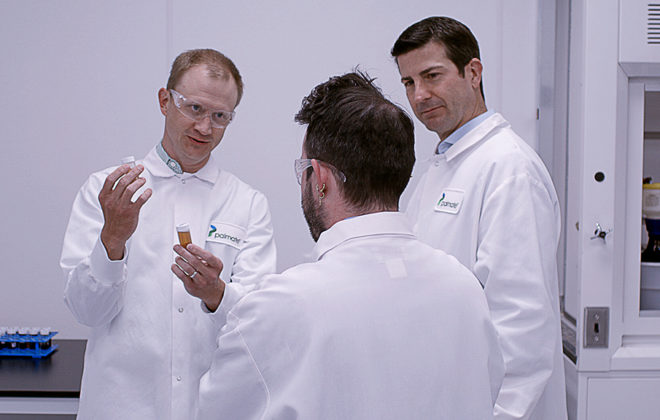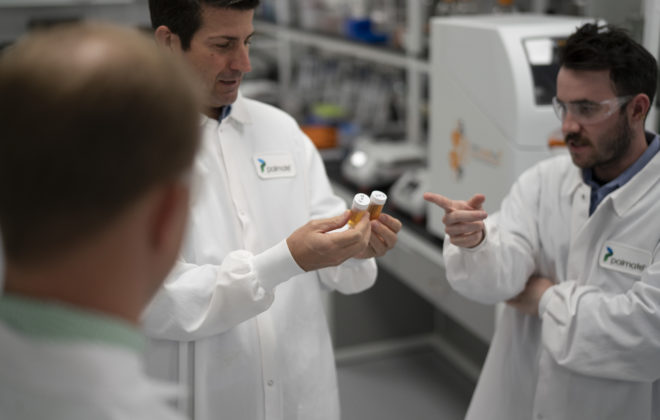
Not Incorporating HACCP in Your Cannabinoid Processing? This Is Why You Should Be
Not having the proper checks and balances in your cannabinoid processing puts both the consumer and the industry as a whole at risk. Learn why cannabinoid ingredient suppliers and cannabinoid-based product manufacturers should hold themselves to a higher standard of quality and safety by incorporating the Hazard Analysis Critical Control Point (HACCP) system.
A brief history of HACCP
HACCP began in the early 1960s through a collaboration of NASA and the Pillsbury Company as a program to create safe, pathogen-free foods for astronauts traveling to space.
HACCP has evolved over the subsequent decades to become an all-encompassing food safety tool. Today, it’s used by food manufacturers around the world and is based on the following seven principles defined as:
- Conduct a hazard analysis.
- Determine the critical control points (CCPs).
- Establish critical limits.
- Establish monitoring procedures.
- Establish corrective actions.
- Establish verification procedures.
- Establish record-keeping and documentation procedures.

Why cannabinoid ingredient suppliers should be using HACCP
With the Agriculture Improvement Act of 2018, hemp and hemp-derived substances became exempt from the list of Schedule I drugs under the Controlled Substances Act. Since then, cannabinoid companies have popped up across the country in a race to produce both consumable bulk ingredients and finished cannabidiol (CBD) products.
Most of the production processes used to manufacture CBD and other cannabinoids are neither new nor unique; they’re similar to processes used throughout food and pharma manufacturing.
But unlike these well-established manufacturing sectors with longstanding regulations, the hemp industry currently lacks consistent regulation. Unfortunately, that means safety controls vary widely, creating an environment ripe for risk and worst-case scenarios like product recalls.
HACCP solves this problem because it provides a centralized risk management system that can—and should—be used industry-wide.
How HACCP works
HACCP uses a risk-based approach for product safety that focuses on three major categories of hazards:
- Biological (e.g., pathogens, yeast, and mold)
- Chemical (e.g., pesticides, allergens, radiation, and maintenance chemicals)
- Physical (e.g., hair, jewelry, and machine parts)
With HACCP, each ingredient and each process step—as well as the equipment used, the practices used, the storage conditions, the packaging, and the transport conditions—are analyzed to help determine what could go wrong before it does.

Your next move
If you’re already familiar with HACCP, you might be wondering how you can create a HACCP plan for product categories such as cannabinoid-based topicals or even smokable products. The simple answer is this: exactly as you do for food.
The three major contamination hazards (i.e., biological, chemical, physical) all apply, and determining the specific risk factors within each category will help you put proper controls in place.
If you’re starting from scratch (or even if you’re not), you’ll greatly benefit from attending a HACCP training course to understand the seven principles (see above) and how to apply them. There are also many free tools, templates, and forums available online.
The urgency to keep products safe and our future strong
Our industry is young and evolving quickly. We have a big enough hurdle to overcome in terms of stigmas associated with cannabis. We can’t afford a major product safety recall.
By implementing HACCP, you’ll do more than keep products safe for consumers. You will help to keep our industry strong and our future bright.
Wondering how Palmate can provide cannabinoid ingredients that unleash the full potential of your products?
Related Posts
Recent Posts
- 7 Questions to Help You Find a Trustworthy CBD Ingredient Company
- Why CBD Companies Should Re-Examine Their Marketing Content—NOW
- Qualifying an Ingredient Supplier for Your CBD-Infused Beverage Products: 5 Crucial Questions to Ask
- The Logical Leap: 5 Reasons Why You Should Integrate CBD into Your Business
- GFSI-Recognized Certification: How Cannabinoid Ingredient Suppliers Can Help Manufacturers Succeed
Categories
- Best Practices (4)
- CBD and Business (3)
- Certifications (1)



